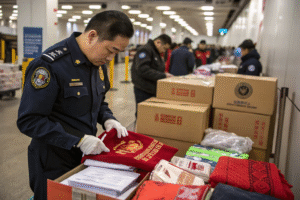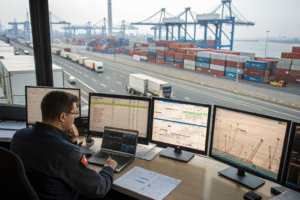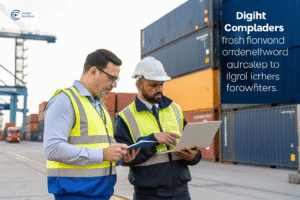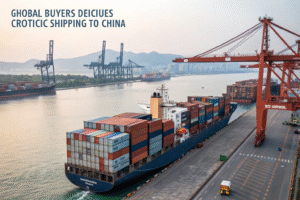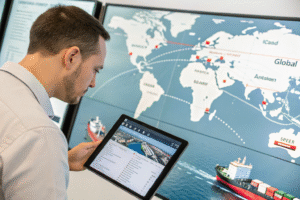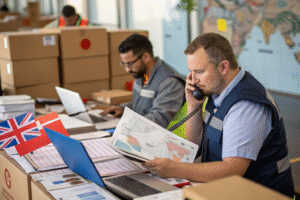One missed update can mean thousands lost. In international freight, silence is the enemy of success.
Communication with your freight forwarder is crucial to avoiding delays, managing risks, and staying confident in your supply chain. Regular updates and fast responses are what separate good freight partners from great ones.
When something goes wrong in transit, how quickly you learn about it—and how clearly you're guided—can make or break your shipment. At GeeseCargo, we believe smart communication is just as important as smart routing.
Why real-time updates matter in international shipping
Shipping across countries means navigating time zones, different regulations, and unpredictable events. Without up-to-date information, you're flying blind.
Real-time communication allows you to make fast, informed decisions about your cargo—whether you're rerouting, notifying a warehouse, or adjusting your sale plans.

How can a single real-time update save your entire shipment plan?
Let’s say your goods are on a vessel arriving in Long Beach. There’s a new CBP inspection rule kicking in the day it docks. Without a heads-up, your cargo gets held.
Now imagine your forwarder updates you three days in advance. You file extra paperwork early. No delay. No cost.
That’s how real-time updates work. They:
- Keep your schedule intact
- Help you avoid fees and fines
- Let your receiving teams prepare
- Allow you to notify customers in time
I had one client importing LED gift boxes. A change in fumigation inspection criteria was announced just days before arrival. We warned them early. They added a new certificate to the file. Goods were released without delay—while others at port sat for 5 extra days.
What kind of shipment updates should your forwarder provide?
| Update Type | Why It Matters |
|---|---|
| Pickup confirmation | Ensures factory handover was successful |
| ETD/ETA changes | Allows sales or warehouse to adjust |
| Customs status | Tells you if goods are held or cleared |
| Transit milestone updates | Tracks location and progress of cargo |
| Delivery appointment | Confirms truck schedule at destination |
Without this kind of flow, you’re guessing. That’s never a good strategy in freight.
How clear communication prevents shipping delays
A lot of delays start with misunderstandings—wrong labels, missing documents, or cargo at the wrong port. They all trace back to poor communication.
Clear, timely communication with your freight forwarder helps avoid shipment errors, improves customs compliance, and prevents costly delays.
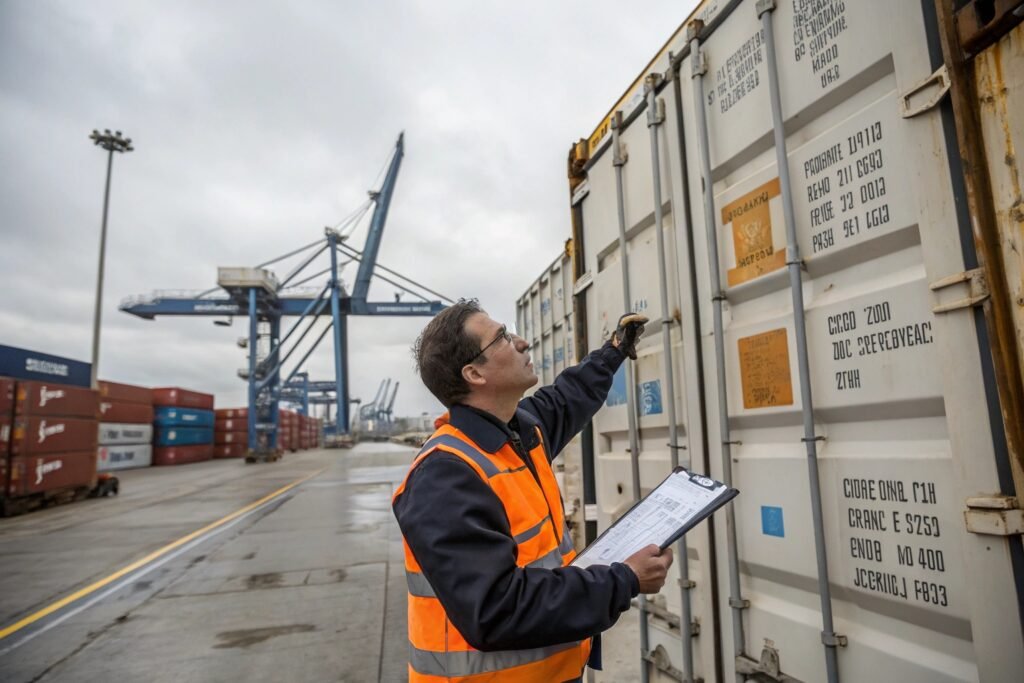
What are some examples of delays caused by unclear freight communication?
- A buyer didn’t confirm carton labeling requirements. The forwarder used default labels. Amazon rejected the shipment.
- A shipment needed a fumigation certificate, but the exporter thought it wasn’t required. Customs held it.
- The forwarder misunderstood the delivery address—used a retail location instead of the distribution warehouse. Trucking cost doubled.
These aren't rare. I’ve seen all of them. The fix? Clear communication on every stage of the process. At GeeseCargo, we use SOPs and shipment checklists so everyone is aligned.
How should your forwarder communicate to avoid these mistakes?
| Topic | What You Should Expect |
|---|---|
| Documentation | A checklist of required forms with deadlines |
| Labeling & Packaging | Confirm specs before cargo leaves factory |
| Delivery Addresses | Verify consignee and contact phone/email |
| Special Requirements | Customs warnings or destination policies |
| Role Responsibilities | Who handles what part of the shipment |
Before goods move, we clarify all of the above. That’s why our shipments arrive clean, correct, and on time.
Tools forwarders use to keep you informed
Good communication needs good tools. Relying on email alone isn't enough in fast-moving logistics.
Modern freight forwarders use digital platforms, shared trackers, messaging tools, and automated notifications to keep you informed in real time.
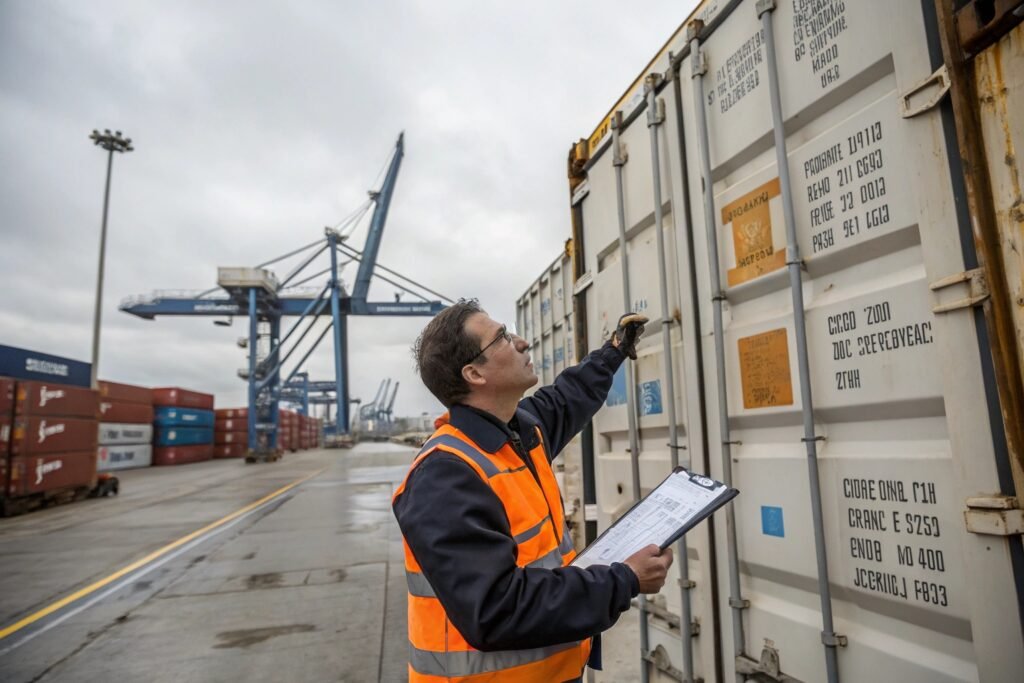
What digital systems do forwarders like GeeseCargo use?
We rely on:
- Shipment tracking dashboards: Live status updates, ETA changes, delivery confirmation
- Shared Google Sheets: For inventory matching, PO status, or FBA planning
- WhatsApp or WeChat: Instant answers for urgent shipments
- Email alerts: Milestone updates and document sharing
- Custom portals (on request): Client-specific login with shipment history
One client moving winter gloves needed regular status updates for every SKU. We built a simple Google Sheet that updated daily. His U.S. team planned warehousing precisely—and never ran out of stock.
How do these tools prevent miscommunication?
| Tool | Prevents This Problem |
|---|---|
| Live tracking link | Avoids “Where’s my cargo?” confusion |
| Shared checklist | Avoids missing document deadlines |
| Group messaging | Avoids slow approvals when decisions are urgent |
| Scheduled reports | Avoids missed cutoffs for delivery scheduling |
These tools keep you in the loop without needing to chase updates.
Building trust through proactive logistics support
Good communication isn’t just answering questions—it’s reaching out before problems happen.
Freight forwarders who communicate proactively build trust, reduce client anxiety, and become true supply chain partners—not just cargo handlers.

What does proactive freight communication look like?
It looks like this:
- “The typhoon may delay departure. We’ve secured backup space.”
- “Customs is checking more textile shipments lately. Please double check your COO format.”
- “We can split the container so you get half the goods in 10 days instead of 25.”
Proactive forwarders solve problems before you even know they exist. That’s what we do at GeeseCargo.
I remember a shipment of baby hats stuck due to a backlog at LAX. Before the client panicked, we already had a trucking plan from Oakland. Delivery was still on time.
Why does this kind of support matter to buyers and importers?
| Situation | Proactive Support Result |
|---|---|
| Regulation changes | Stay compliant and avoid penalties |
| Weather disruptions | Reroute and maintain delivery timeline |
| Supplier delays | Reschedule shipping and save space fees |
| Mislabeling risk | Fix early at origin before inspection |
Communication builds trust. And trust builds long-term partnerships. That’s why many of our clients have been with us for years.
Conclusion
When shipping across borders, good communication isn't optional—it's essential. With a forwarder like GeeseCargo that keeps you informed, proactive, and protected, your global logistics stay on track and stress-free.

